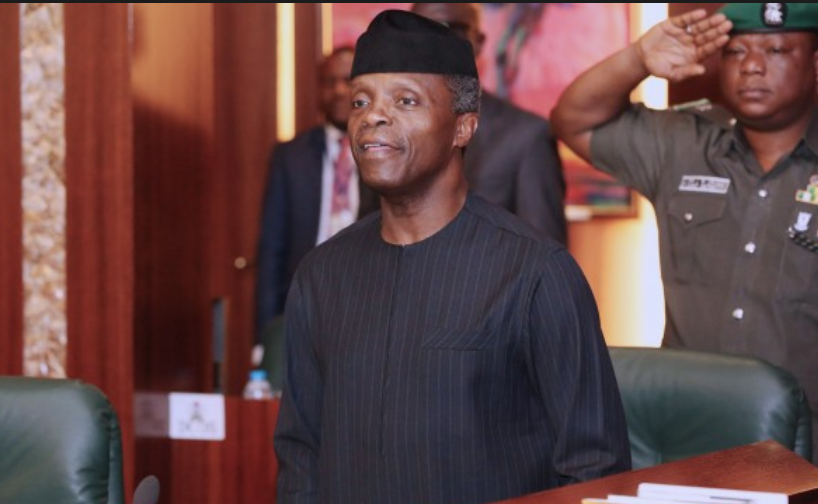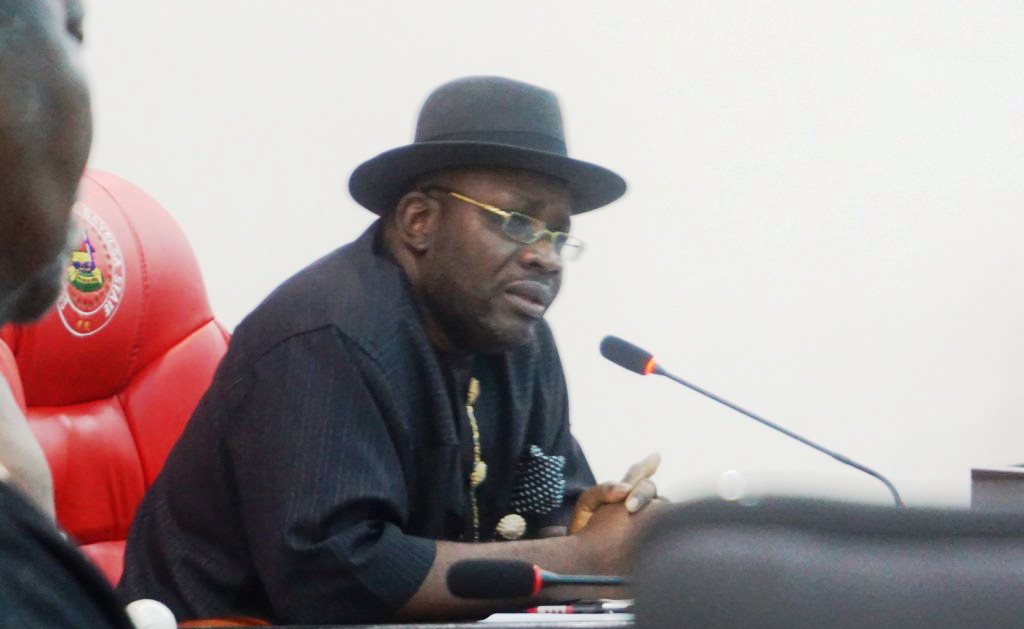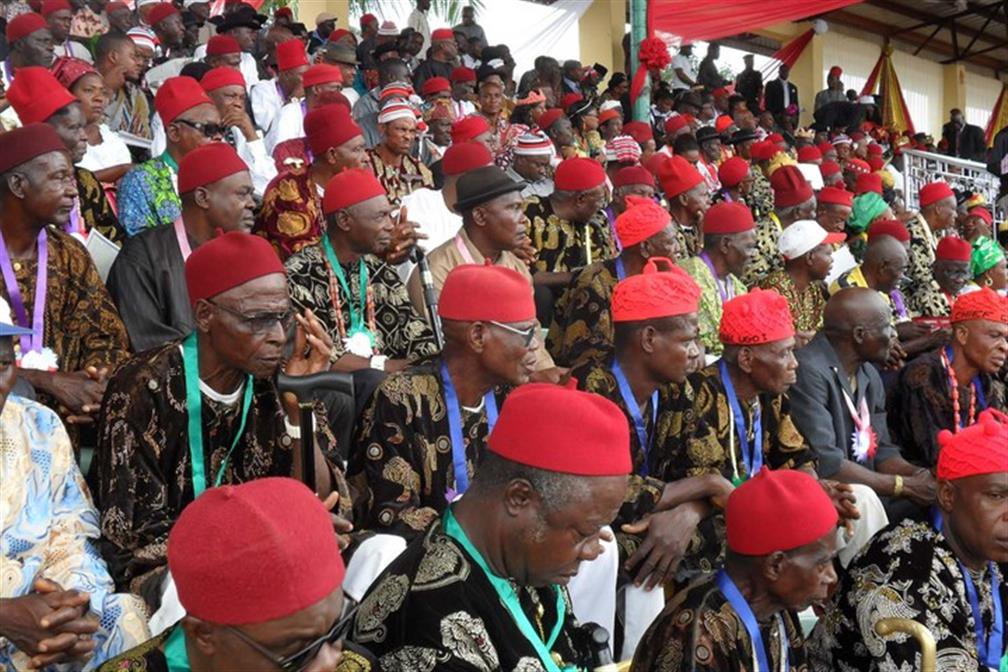By Sola Ebiseni.
Like it or leave it, Osinbajo was one good choice Buhari made then as his running mate. If there’s any value in this government, ‘Osinbade’, as his boss admirably wishes he’s from a royal family, has added in critical and crucial times. The last and most applauded was his stern stand on the Director of State Security Service which Osinbajo demonstrated courage to rid the government of, in spite of the known closeness of the former to his boss.
In recent times however, particularly since the last lap of the 2019 race began, it is becoming evident that the learned Professor of Law of Evidence has been so stressed in his onerous task of discharging the burden of proofing the performance and continued relevance of this government, that the inescapable law of diminishing returns has caught up with him. It is thus advisable that, before his own personal goodwill is eroded with the spent integrity of this government, the learned professor needs some introspective circumspection.
The Vice-president’s comments on restructuring in his recent lecture at the University of Ibadan, which was charged at Atiku Abubakar former Vice-president and Presidential candidate of the PDP, showed clearly that Osinbajo may be turning the debate into a roforofo fight, unmindful of his own hard earned and admirable intellectual integrity. Of course, Osinbajo knows and knows that Nigerians know that he indeed knows, that restructuring of the Nigerian federation is beyond constitutional amendment and certainly unrelated to the judicial interpretation of the current constitution which, as the grundnorm, is the target of advocates of restructuring to be uprooted.
Thus, his claims of having been at the Supreme Court twelve times, as Attorney General of Lagos state, for legal concessions to share from the import/export duties from the Lagos port, creation of additional Local Governments etc which he termed restructuring efforts could have been laughed off by his distinguished audience in UI.
The Vice-president certainly did not expect his sophisticated audience to take him serious when he sought to equate the fundamental issue of restructuring with seeking judicial interpretation and further elucidation or entrenchment of the vexed 1999 constitution. Professor Osinbajo, like others seeking to confound Nigerians on restructuring, has said that its advocates did not understand or have not clearly defined same. Yet he left his audience deliberately not giving his own definition because that certainly would have exposed him before his enlightened audience. His style of enumerating some unrelated efforts is undisguised sophistry, bordering on personal aggrandizement.
Professor Osinbajo is not alone in this adventure on the issue of restructuring. Some of our colleagues, especially in the legal profession, very often seize prime television hours to celebrate such inanities as alternatives to restructuring. They are wont to reel out such examples as Lagos solo efforts over sharing of VAT proceeds or control of inland water ways.
Informed Nigerians are often shocked that some of these elements, notably high priests of Civil Society groups, were visible faces at the 2014 National Conference where the theory and praxis of restructuring Nigeria were eloquently articulated and documented. The resolutions were later adopted by the Jonathan Federal Executive Council and later submitted to and received by the National Assembly before the exit of the Jonathan administration. In its convenient but piecemeal amendment of the constitution, the National Assembly has had to copy from the report of the Confab.
The ridiculous excuse by the advocates of the extant constitution is that Jonathan should have implemented the report before his exit. They conveniently ignored the dominant role of legislatures (National and State) in actualising the resolutions and the fact that after the submission of the report in September 2014 and the impending elections, Jonathan had become a lame duck. While the Buhari/ Osinbajo government and its apologists continue to look for the definition of restructuring before throwing their hats in the ring, their party, at a time, succumbed to popular views and constituted the Governor El-Rufai led Committee on True Federalism, a term that is not just the expected end of restructuring but its very essence.
The El-Rufai Committee, in less than one month, simply and realistically copied and reproduced part of the Confab report that dealt with overhauling the extant constitution to enact a true federal arrangement which is imperative for our territorially vast, culturally diverse and linguistically polyglot nation state.When confronted with the helplessness of the nation’s security forces in the unending battle with insurgency, Osinbajo has several times advocated decentralisation of policing to enable states more effectively secure their territories but his view remains personal in spite of his decorated high office.
Except Osinbajo is merely saying this to impress Nigerians, it should be clear to him the situation Atiku could have found himself as a Vice-president if his boss is enamoured with the extant unitary constitution that suits his military background. The adherents of the status quo would spare nothing to denigrate restructuring and its advocates even at the expense of their personal integrity and all they had pretended to be before the Nigerian public.
For instance, the reports of the 2014 Confab appears to be the national consensus, a compromise between two extremes. The Confab of about 500 eminent personalities, was a potpourri of eminent Nigerians, drawn from all walks of life, including the leaders of the ethnic nationality groups. The great debate was between those who wanted a return to parliamentary federalism with the six geopolitical zones as federating units and those who saw nothing wrong with the present constitution. The former position was championed by the dominant South West group, the Afenifere, while the northern leaders largely represented the latter position of defending the current constitution.
The final report was a national consensus which adopted presidential federalism with the federal capital territory and the present states as the federating units, while states are enjoined to create Zonal Commissions for security and economic cooperation.The Local Government would no longer be listed in the constitution but the business of the states, which could create them in line with their culture and resources. The police would be decentralized in such a way that officers from the rank of Chief Superintendent and below would serve in the states of origin while, in addition, states that so desire would be constitutionally empowered to establish its own police.
Solid minerals would be on the concurrent legislative list for both federal and state participation and ditto for electricity, the railways, air and sea ports, inland water ways etc. In addition to these far-reaching devolution of powers, proceeds of the federation account would be restructured in favour of the states and local governments which are more realistically placed to develop the land and the people.
In the above regards, the legislative list would consist of a lean Exclusive being matters that could not be dealt with except by the government of the federation and restricted to the armed forces, central bank, citizenship, emigration and immigration…). The other is a specifically role-defined concurrent list while legion of deliberately unidentified issues are reserved for the states.
These decisions were arrived at by in-depth negotiations involving former governors, senators, members of the House of Representatives, state Assemblies, federal and state judiciary, local government Chairmen, representatives of ethnic nationalities, women, youth, the media, civil society organizations, the physically challenged persons etc.
No sooner than the Buhari administration was sworn in, that some otherwise respected individuals and vissible delegates at the Confab, among them senior citizens including members of the civil society and pretentious consciences of the society, began to speak tongue in cheek in denouncing the Confab and its resolutions. Some shamelessly soon claimed that the Confab delegates were not elected or that the distribution did not reflect their own understanding of the demographic reality of the counry.
In this deliberately created national confusion, men desirous of the presidential seat, old and the not-too-young-to-run, have all conveniently dodged the issue of restructuring for fear of an electoral backlash. Only Atiku Abubakar has stood to be accounted on this score. That’s the reason leading members of the Afenifere and other advocates of restructuring are favourably disposed to his candidature.
The Yoruba sociopolitical organization remains consistent in this regard as it did with Jonathan for his courage in convoking a National Conference with absolute freedom of engagement among the conferees. In the belief that Jonathan would eventually implement the Confab reports, Afenifere strategically endorsed his re-election. Notwithstanding some mischievous criticisms, if the Afenifere is favourably disposed to the candidature of the former Vice-President and the Waziri Adamawa, such stance would be absolutely consistent with the nature and nurture of the foremost Yoruba sociopolitical Organization.
For those playing the ethnic card of the APC giving the Yoruba the Vice-president, let them be told that while we are convinced that no political party would undermine the Yoruba without fatal consequences, yet having tasted even the nation’s number one seat, we are further fortified in our beliefs that the structure which gave us
autonomy and granted us the fillip in comparative development is most fundamental.
In sum, everyone has his place and way, it is glaring that the political turf and its gallery is not Osinbajo’s strong point. He’s better still saddled with adding colour to governance in his areas of comparative advantage, which includes the ease of doing business, mobilizing small and medium enterprises and providing comic reliefs to the economically traumatised Nigerians through his nerves rankinling jokes on several public podiums.
Sola Ebiseni legal practitioner and former Commissioner for Environment, Ondo State was delegate at the 2014 Confab.




